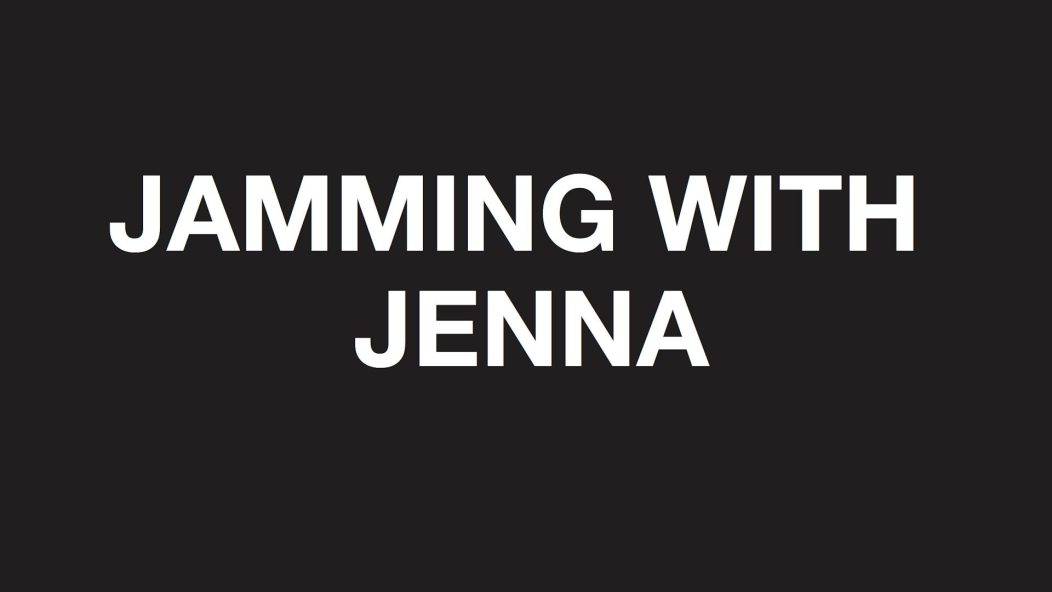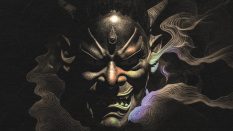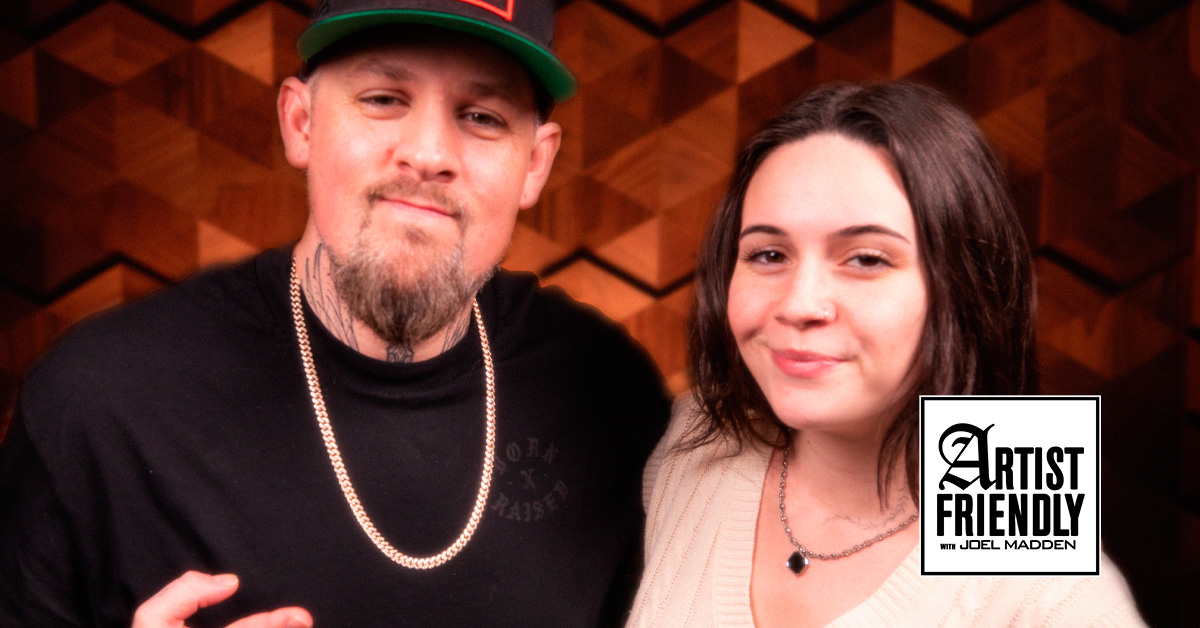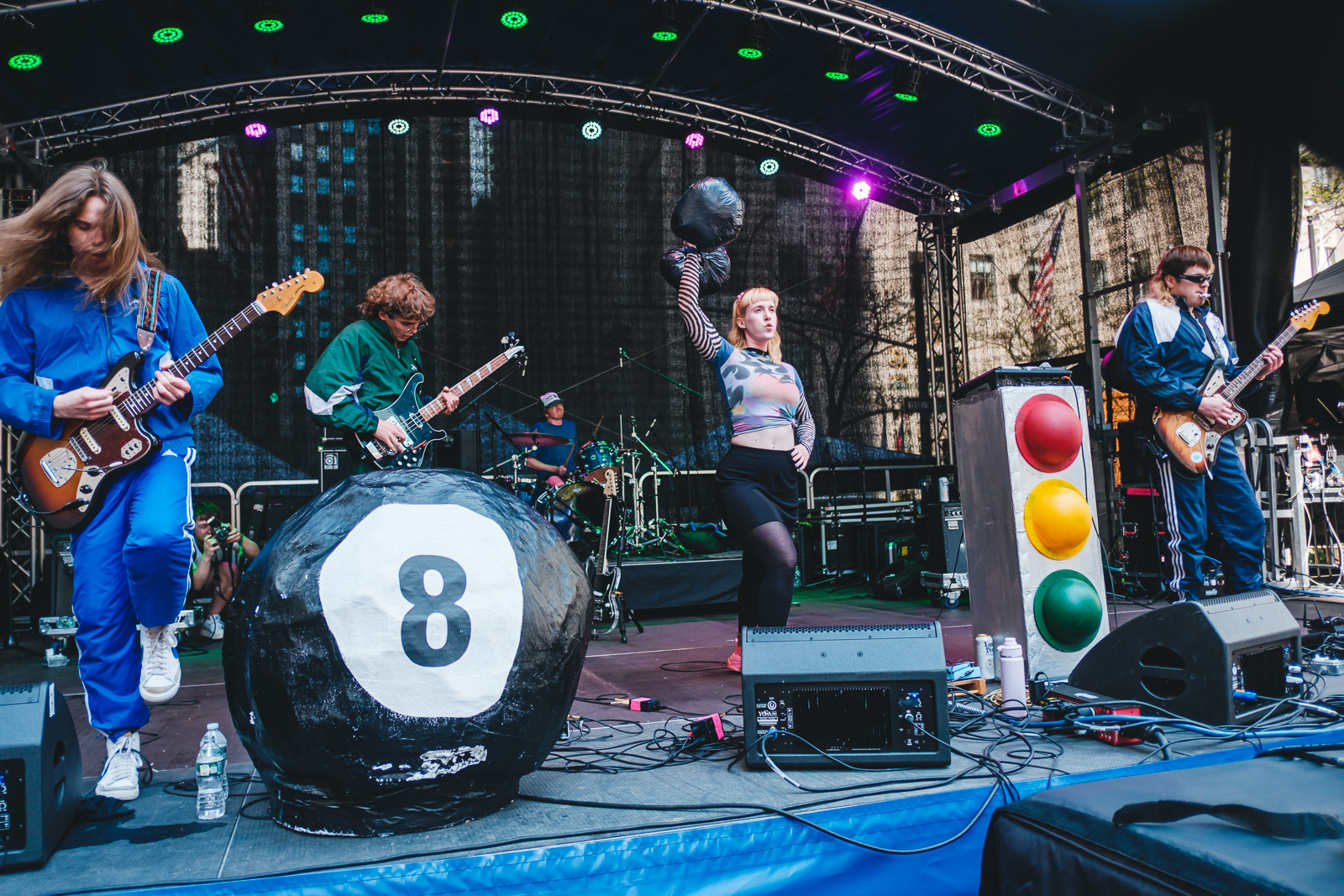
Jamming with Jenna, Round #2: Metal, A Place for the Strong to be Weak

…
In this column, IO Staff Writer Jenna DePasquale connects heavy metal with the world at large.
…
Metalheads have been called a lot of things over the years, but in the era of social media, it seems like their biggest critics are themselves. While every metal site has its loyal opposition of commenters no matter the topic being discussed, articles about current events seem to bring out the worst in many. “I Never Knew Metalheads Were Such Pussies” is one supposedly well-thought rebuttal to any effort to extend compassion when life has been lost or abuse has been revealed in the scene. As a music journalist, it’s frustrating that a constant lack of satisfaction with content coverage drowns out overwhelming support. But mostly, these ad hominem attacks and sweeping generalizations about the community’s strength are confusing because the sentiment is so out of step with what I grew up thinking metal was. What attracted me to heavy music was my frustration toward the great strength I had to exhibit in other areas of my life; what made me stay was that metal was one arena where I could let my guard down and be weak.
For the most part, I’m young enough to have missed the major brunt seasoned heavy music fans have had to bear. I watched KISS records getting burned from the safe vantage point of The Virgin Suicides, and I probably never would have believed the mass hysteria over Marilyn Manson if it wasn’t for the YouTube clips of his cameos on Phil Donahue. However, I did catch the tail-end of a time when hard rock was still, to a degree, taboo. When I started junior-high in 2005, anyone who liked anything with screaming and a guitar — regardless of it was Alesana, Disturbed, or Children of Bodom — were lumped into the same group of misfits. While subgenres now rule, the shroud of black t-shirts and long hair seemed like the long-lost protector had been unknowingly seeking since I first laid in bed dissociating at six years old.
…
…
From the minute I started school, I knew there was something “off” about me compared to the other kids. The equivalent of the Olsen twins ruled my grade, coming to school fresh off a Caribbean vacation with a golden tan and braided hair. Yet, there I was with awkward bangs chopped across my large forehead, chubby and pasty in my older sister’s hand-me-downs. I was always nervous, so I didn’t talk much, but when I did, it was like I was always saying the wrong thing. I became a frequent flyer to the nurse’s office in order to release myself from the grips of class.
By the time I got to the fifth grade, I saw my first glimmer of salvation. I once heard someone refer to System of a Down as “Fisher-Price: My First Metal Band.” That was certainly the case for me when I saw “B.Y.O.B.” premiere on MTV while getting dressed one day before school. Because YouTube didn’t exist yet, I continued to flock to the morning video block hoping to catch it again, but I always kept the remote handy, ready to flip back to Disney Channel in case one of my parents walked in the room. It’s not that I would have gotten into trouble for watching PG-13 content, but I think I felt some kind of shame, as if I was a voyeur into a place where I wasn’t supposed to be looking.
When I went to middle school, however, I slowly began to realize that I had, in fact, stumbled upon the exact scene where I needed to be through my exposure to System of a Down. While the subconscious sense of non-belonging ate away at me throughout elementary school, it was thrown into my face the moment I hit sixth grade. I had lost my baby fat, but I had yet to grow into my facial structure. My mom was strict about wearing makeup, and we didn’t have the money for a wardrobe filled with Abercrombie. Random people I didn’t even know started walking up to me in the hallways and calling me ugly and telling me like it looked like my clothes were from Goodwill. Some of the eighth-grade lacrosse boys who I admired from afar seemed a lot less appealing when they started asking me out as a joke. Every day I was on edge that someone was going to say something that would knock the wind out of me. When my dad would pick me up after practicing my trumpet at my after-school band rehearsals, he’d ask me how my day was. If I managed to get off without any jabs I would say “good,” but if not, I’d just offer an “okay.” I knew that confiding in him about the truth would just end in two broken hearts instead of one.
So instead, I just chose to be strong.
At first, I attempted to deter personal attacks by putting on the most normal of faces. But, given the practical constraints I was facing, I was never very successful. Eventually, I picked up on a curious correlation: it was never the scary kids who were actually the ones being scary. The Tripp Pants ilk were pretty adept at minding their damn business. I started to look a little more closely into the culture. From System of a Down, I fell down the rabbit-hole of Korn and Flyleaf. While my newly professed atheism was a bit incompatible with Lacey Mosley’s Jesus shtick, I don’t think I could have stumbled upon a better role model than a woman screaming her heart out while her hair flew free. By the time I was 13, the deal was sealed. While most girls were coming into womanhood with a Nick Jonas wallpaper staring back at them on their desktop computer, I had Serj Tankian in a fitted trench coat and wild curls.
While I had organically found my long-lost refuge, I was also drawing a very decisive line in the sand by asserting my identity as an extreme music fan via studs and all black. I went from looking down at my sneakers to looking at everyone — the pissant rich kids, the conception of what a young woman should be, and all the constant messages that I wasn’t good enough — in the eye, and I said, “I’m done trying to be like you.”
By the time I got to high school, my iPod Nano was starting to be home to everything from Rammstein to Rage Against the Machine. Stomping around with headphones in and duct-taped Vans on became my favorite pastime between classes and the moment I’d step outside the doors. I was still a human punching bag, particularly because my newfound self welcomed a whole new host of hate, but I could at least take solace in the fact that I was being true to myself. After wasting so much time trying to fit in, that person was worth taking a bullet for. Nevertheless, my melancholy seemed to grow into anger that boiled a little hotter with every play of “Killing in the Name Of.” The hatred of my classmates was spilling into hatred of my school more generally until the bloodbath coated my entire hometown. I had come to the realization that bullies had never existed in a vacuum – this placed reared them, and I had no intent of sticking around.
…
…
By 15, I was done. I put forth effort in the classes I enjoyed — journalism and history — because I knew I wanted to be a writer and social scientist. Yet, for some reason, I was thrown into the wolves of PE and physics, where I was forced to play nice and complete labs with the same people who had been commenting ugly bitch on my Facebook photos the night before. I was so close, yet so far from achieving my dream of going to college in a distant place. I had enough of brave faces and just wanted to collapse exhaustedly into a more hospitable world. At first, I did so in the arms of older (in retrospect, predatory) guys who would tell me all the things that contradicted years of having my looks shoved into the school toilet. All that did was get me into trouble, and ultimately, more turmoil. If I had just been a little naiver and a little more brazen, I might have come out of the other side to some place even darker.
Luckily, the time I spent in headphone heaven kept my head about the clouds. Through my love of Serj Tankian I found a recent addition to his record label, Serjical Strike, called Fair to Midland. The progressive rock/alternative metal troupe from the outskirts of Dallas offered a degree of simplicity while simultaneously providing an aura to which I had never been previously exposed. Not only did the five-piece facilitate my taste in music rising a degree above Nymphetamine Fix, put they painted vibrant horizons that added Texas to my list of required travelling. 2007’s conceptual Fables from a Mayfly and follow-up Arrows and Anchors, along with a host of early demos, became the soundtrack to the snow melting off my sophomore year. As quickly as life started to look a little rosier, Fair to Midland announced a date at the now-defunct venue, Bourbon Street Baltimore.
Christmas had been postponed to spring break that year. I counted down the days in my school agenda, excited at the prospect of my first real show. A warm rainfall fell that morning as my Fables CD echoed throughout the kitchen. It was a kind of rebirth that I will probably never feel again, but in the purest sense, I was allowed to just breathe. Dodging the lingering raindrops as I raced out to the car, my dad took me dutifully to the doors where my older sister, who attended college nearby, waited as my equally-enthusiastic chaperon. Once I got my “pair of X’s,” we crowded the front and center row, pressing tightly against the stage in the absence of a barricade. I got the polite nod down during the openers pretty quickly, but the sense of eternal wait for the headliner came even faster.
Finally, in the blur of it all, I knocked against the shoulders of my sister and another enthusiastic fan. We all shouted lyrics in unison as Fair to Midland guitarist Cliff Campbell joined us in song. Let my hair down, I did. My lengthy locks probably would have made a lot bolder of a statement as metal man, but I waved them around with the fervor of every music video I had watched when procrastinating homework. I suppose I headbanged myself into some kind of vortex because I felt solace in the watchful eye of everyone and no one. Singing for the first time ever in a choir of my own constituents, “another tomorrow filled up my front window,” as Fair to Midland’s Walls of Jericho would say. And so, my outlet had become an out from the nasty world laying dormant outside the doors.
While the days following the show slipped into a sense of longing, I came to miss something I actually got to have a taste of, rather than something I struggled to put a finger on. My new reason to hold on became the ability to travel the country to hear music; that’s one of the cool things you get to do as an adult, like eating cake for breakfast. To kick off my adult life, that’s precisely what I did. As college waned, I finally got my wish of traveling to Texas when Housecore Horrorfest came to San Antonio. I even managed to make it all the way to the Pacific to watch Xasthur’s transition into acoustic mayhem. Now that I’ve hit the meat of my 20’s, however, I’ve misplaced a bit of that intense craving for getting lost in a community that will allow me to do exactly that. I finally reached my destination, moving permanently to the West Coast to advance my career in sociology. I’ve taken off my running shoes, and hopefully for good. Nevertheless, I don’t think I would have gotten here without music as my compass.
For me, metal is almost inherently a safe space. It’s a place where I could relieve my limbs shaking from the weight on my shoulders while staying anchored along the right path. It not only takes immense strength to live every day with a sense of non-belonging, but it takes even more to admit that you have had enough. While I can only speak definitively for myself, I can’t help but feel as though I’m not alone because after years of going to shows, meeting bands, and drinking away time to countless albums, it has been shown that I am not.
…
Support Invisible Oranges on Patreon.
…











